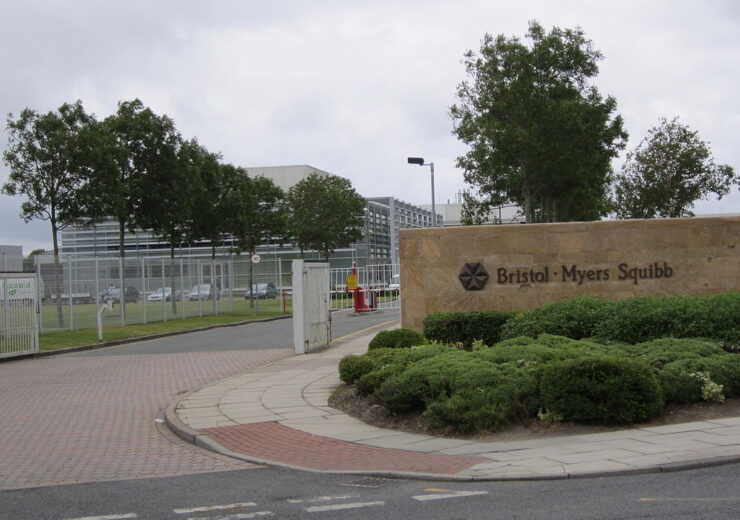The EC approval for Abecma is based KarMMa trial, which showed rapid, deep and durable responses with a well-understood and predictable safety profile

Bristol-Myers Squibb facility in Wirral, England. (Credit: Rept0n1x/Wikipedia.)
Bristol Myers Squibb (BMS) has received the European Commission (EC) Conditional Marketing Authorisation for Abecma (idecabtagene vicleucel) to treat a type of multiple myeloma.
The EC indicated the drug to treat relapsed and refractory multiple myeloma in adults, who received at least three therapies previously, with disease progression on the last therapy.
Abecma is a chimeric antigen receptor (CAR) T cell immunotherapy that targets B-cell maturation antigen (BCMA), a protein expressed on cancer cells in multiple myeloma.
The CAR T therapy was initially approved in the US in March this year to treat relapsed or refractory multiple myeloma after four or more prior lines of therapy.
The drug is administered through a single infusion, with a target dose of 420 x 106 CAR-positive viable T cells within a range of 260 to 500 x 106 CAR-positive viable T cells.
BMS secured the Conditional Marketing Authorisation for Abecma under the European Medicines Agency (EMA)’s PRIME (Priority Medicines) scheme.
Bristol Myers Squibb chief medical officer Samit Hirawat said: “The EC approval of Abecma is an important milestone for the treatment of multiple myeloma, and moves us closer to offering a first-in-class, personalised therapy to patients in Europe battling this incurable disease after exhausting prior treatment options with the three standards of care.
“With this third regulatory approval for Abecma worldwide, we are proud to be advancing the science of cell therapy and continuing to bring this first anti-BCMA CAR T cell therapy to patients in need.”
Abecma was approved based on results from the KarMMa study, which enrolled in 128 patients with relapsed and refractory multiple myeloma.
In the study, the treatment using Abecma showed 73% overall response rate (ORR), and 33% of patients experienced a complete response (CR).
The onset of response was rapid with a median time to response of one month and were durable, with a median duration of 10.6 months, and 23 months for those who achieved CR.
The most common adverse reactions include neutropenia, anaemia, thrombocytopenia, leucopenia, lymphopenia, infections – pathogen unspecified, hypophosphataemia, febrile neutropenia, hypocalcaemia, CRS, hypertension and hyponatraemia.
Furthermore, BMS intends to manufacture Abecma for both the EU and the US patients at its advanced cellular immunotherapy manufacturing facility in Summit, New Jersey.
KarMMa clinical trial investigator Jesus San Miguel said: “In multiple myeloma, when a patient’s cancer is no longer responding to their current treatment regimen or the patient relapses, the disease becomes increasingly difficult to treat.
“In the KarMMa trial, treatment with ide-cel proved to elicit deep and durable responses in a significant proportion of patients with triple-class exposed multiple myeloma, including many who were heavily pre-treated and had high-risk disease.
“The approval is important for patients in Europe, as it represents another potential therapeutic option for clinically meaningful outcomes and long-term disease control.”
